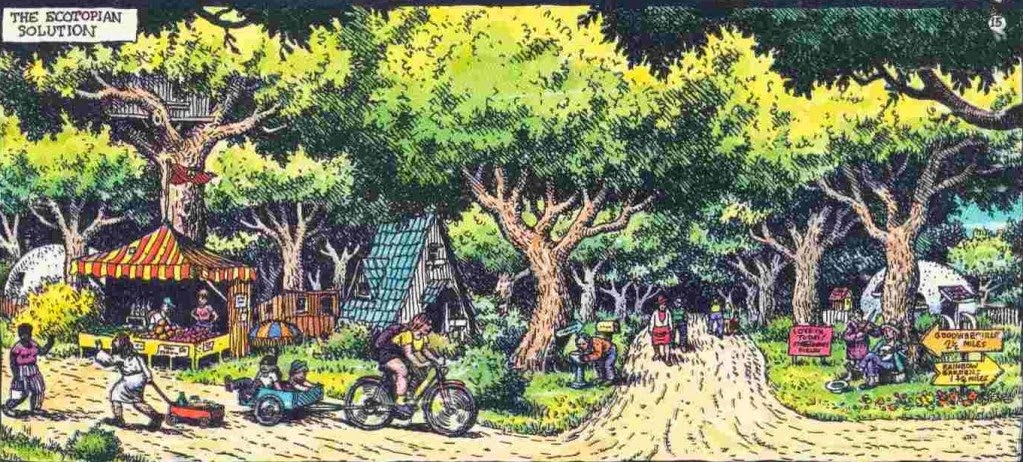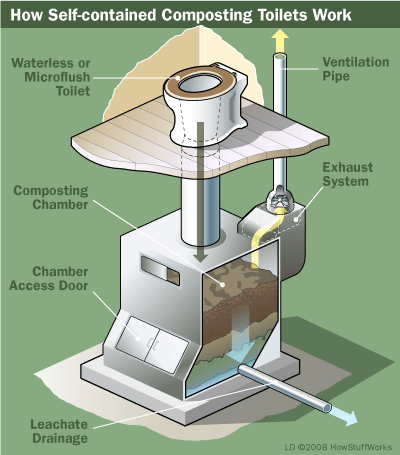This is possibly the biggest post I have put forward. I can feel the weight of it upon me before I even start. Here are some things to share with you on this ponderous subject and you will be able to see for yourself how it fits with your world view and aspirations.
Why do we have centralised authorities? Something to do with economies of scale, safety in numbers and quantity of human life versus quality methinks. We pay protection money to our authorities so that any potential invaders, real or imagined will be deterred by the unified might of our protectors. But haven't I just advocated for unity in my last post. I have. I suppose I would not mind being protected if I actually felt safe from the very beings who were supposedly looking after my/our interests. (Hence the need for this post.)
Lewis Mumford's books (the two of which I will hold up as stone tablets in suitably dramatic fashion) have provided some clue.
On the origin of the city in western-modern civilisation. I would not venture to guess how many times civilisation has emerged and re-emerged and in how many places it has done so.
Walled cities in Europe at any rate were largely a reaction to Norse invaders with a penchant for taking what they could find in milder climes and from those who they may have seen as milder natured.
Interesting that the first Viking attack, Lindisfarne, Scotland (793 AD) was on a Christian target -- a monastery.
But what happened before that was -- hmm. The encroachment of Christian armies into Scandinavian (then pagan) territories. Who were well known for causing spontaneous conversions through the judicious use of sword and fire [irony intended].
So Christianity engendered the city as we know it in the west -- a sort of fortress to keep wealth in and robbers out.
My view of security is that it stems from those inside and outside (and ultimately no separation will be needed) having the same right to property (land) and the same access to the means of fulfilling their basic needs. So instead of spending resources on defending our things from them, we could/should/would like to be able to ensure that there is no one to defend against -- because they are equally advantaged to us. A big ask. Or is it?
(It has been said that it would cost 10% of the global military budget to end world poverty.)
The root cause of conflict if we examine it I believe to be nothing more than squabbling over resources.. for if all have what they need would there be any fighting?
We do have examples of supposed ideological conflicts -- but can these not be linked to deeper motives such as it is over land and what's under it..
Now that I have got that off my chest, let's zoom in a bit closer -- I did say local after all.
I think we'll start with water rights. This has appeared to be a limiting factor for human settlements throughout the ages and has determined who can grow food and who struggles to do so.
Fukuoka has said, a community that cannot feed itself will not be around for very long.
Zoom up a bit -- we can see that US/Mexico border from space.

It's not about rainfall or even best-practice land management dear friends. [see healthy planet post] It's about the Colorado River. Not much left of it by the time it reaches the Gulf of California (Sea of Cortez).
Since I have mentioned local self determination, let's look at what it may look like if the Colorado River were self managed in mosaic fashion by local farmers along the catchment instead of numerous central authorities (mostly on the USA side of course).
Latest news from Baja, an historic release of water from the Morelos dam at the border is giving new life to the parched delta where the river finishes its course. The mighty river has waited 50 years to reach the salty ocean, and wildlife may begin to return to the fragile estuary. Possibly signalling a paradigm shift in water management in the region.
This is probably one of the biggest obstacles to local hegemony over resources -- because a larger authority steps in to make sure the little guys are doing it right. But the larger authority stopped at the border and forgot to include its other neighbours.
That's why I'm advocating it must be a case of people looking after the rights of other people (here at the very local level) not governments looking after the rights of their people and screwing the other ones.
The border should be meaningless in this case. Mexican farmers (and fishers -- the water is needed to ensure healthy fish stocks) need water just as much as American ones. Farmers could probably come to an understanding amongst themselves where governments cannot.
~ ~ ~ ~ ~ ~ ~ ~ ~ ~ ~ ~ ~ ~ ~ ~ ~ ~ ~ ~ ~ ~ ~ ~ ~ ~ ~ ~ ~ ~ ~ ~ ~ ~
Another thing that we can all see in our built environment is the power distribution infrastructure. One physical argument in favour of local power generation (say on the scale of ten households, or part of your average street as they show in the Thrive movie) -- is that 10% of the power generated (by coal, nukes or hydro or gas) is lost in radiation from the wires.
Not only is this inefficient but unhealthy -- affecting the well-being of people who live near the lines (most would not want to if they could afford to go elsewhere) in terms of cancer risk. And also affecting wild-life migration patterns because animals can see the ultra-violet light the radiation produces and it spooks them. We do not have the right to do this to one another or to other beings.
The other issue with power generation is it completely disenfranchises those at the local level (including our local governments -- or councils). Whether it is CSG alias CBG, CMM, CBM, fracking, or hydro-fracking to extract gas for heating or cooking [that may be exported to other countries], mining of coal to produce power (requiring dynamiting in open pit mines), a nuclear station or just an average fossil fuel power station -- local residents cannot have the quality of life they would like.
In some cases, local people are actively opposed to the imposition of mining but higher levels of government (state and federal) have proven unresponsive (to them) and all too eager to do business with multinational mining and energy concerns. I would like to see local communities have the power to say no to these things [and they are -- look at Gippsland's declaration -- Mirboo North] and have it stick.
Demonstration in Illawarra region south of Sydney.
What is needed is a universal recognition of local people's hegemony over land and resources that cannot be usurped by global/national/state or even their very own electees!
* * * * * * * * * * * * * * * * * * * * * * * * * * * * * * * * * * * * * * *
Moving on.. in Peru I saw a disturbing sight. Or off Peru should I say. Lima's well-known surfing beach as also known for its toxic (brown foamy) tide of human effluent that didn't quite go as far away as we might like it to.
As one guide book put it, the combined sewerage outflow of 8 million bodies has to go somewhere..
(Then we ask if 8 million bodies should be living so close together..) Lewis Mumford's
medieval cities did not become the filthy cesspits we commonly imagine them as until they reached a certain threshold of over-crowding.
And the family loo, privy or pit toilet was adequate to the task of keeping the city (or town) clean.
Here is a very good reason for humans living with adequate space around us, as a native forest of one acre or so should be fine for a small family to do its business camping-style without using up precious drinkable water for flushing as we barbarically insist on today (see Humanure Handbook's opening statement..) [need to read book for it!].
So locally (in small settlements -- surrounded by open land -- of about 100 families on at least 3 acres each) this type of waste management (point-source) would be preferable to central collection, treatment and discharge stations. Even better than septic systems because you would save a lot of fresh water, and easier than composting toilets you have to empty, but it should be a choice.
But the key is --don't we need the right from local/state/federal authorities to live this way -- managing our own waste at home? How absurd. Traditional societies (in China in this example) dug huge holes for composting waste -- then planted beneficial trees when full enough.
Fukuoka refers to re-use of human waste along with animal manure in sustainable rice and grain farming, but very delicately does not go into detail.
+ + + + + + + + + + + + + + + + + + + + + + + + + + + + + + + +
Roads -- (still moving on). Some one remarked where I used to live we had a highway built in 6 months by old-time convicts that is now being rebuilt and it's taken 4 years (and counting).
So progress sometimes isn't (I'm glad that convicts aren't being exploited though.). Whilst I marvel at the technological know-how of men and their machines that can cut through a rocky hillside, I know on a small scale how one vehicle, making one traverse of a field can leave quite a scar on the land. So it is hard to reconcile my love of travel and movement with what the earth might prefer us to do (walk) (cycle) (gallop) (or fly!).
My experience of local councils is they are cash-poor and have a hard time keeping up with residents' requests for paving and improvements. My sense is that locals know the lay of the land better than any one (including council professionals -- sorry guys!). And these locals are the most aware and impacted by so-called improvements.
Here's an example. I used to live at the top of the catchment that fed Sydney's main water supply (a dam).
Again, look what was lost when central authorities dammed a beautiful valley that locals might then have preferred to keep.
The dirt road we lived on used to send silt and other run-off into a sensitive bush (Australian native) area. Council was too busy to help remediate, but did I have the right to step in autocratically and do what I felt was needed to stem the tide of dirty water Sydney-ward? Land rights were a problem (I didn't own) and neighbouring properties were too close by to do the environment justice (let the water spread out in a flood plain) as Peter Andrews might recommend.
This site has some theory.
This one shows a case study.
- - - - - - - - - - - - - - - - - - - - - - - - - - - - - - - - - - - - - - - - - - -
Although I have just offered a list of functions (water, power, sewer, roads) that I believe could be done/provided more effectively by knowledgeable, empowered locals, our current system (the Australian one I am familiar with) pits neighbour against neighbour. The council functions as a mediator between complaining residents (or the police do) and people seem to be frightened of dealing with one another directly. This cannot go on. My definition of sustainable is it embraces what sustains us, what gives us sustenance and what is nurturing. It is essential for neighbours and neighbourhoods to be able to work together (as in sustainability streets or crop and swap -- two local neighbourhood initiatives) -- otherwise we will continue to be pawns in the game of centralised authority.
Just one of many sustainability streets.. Rose Bay, NSW (Australia)
Hulbert Street Fiesta, Fremantle, WA (Australia)
Swapping our Crops, Faulconbridge, NSW (Australia)
Here are some interesting urban examples of street re-design.
. . . . . . . . . . . . . . . . . . . . . . . . . . . . . . . . . . . . . . . . . . . . . . . . . . . . . . .
For some other opinions on these matters -- you could look to the work of Elinor Ostrom who spent years researching a topic known as "Governing the Commons". It seems there are so few examples (thus far) of local people effectively managing shared resources that by illuminating these beautiful case studies and broadcasting them to the world you can win a Nobel Prize (which she did in 2009 in economics). She gives eight rules or guidelines which I will paste here, and give a link.
8 Principles for Managing a Commons
1. Define clear group boundaries.
2. Match rules governing use of common goods to local needs and conditions.
3. Ensure that those affected by the rules can participate in modifying the rules.
4. Make sure the rule-making rights of community members
are respected by outside authorities.
5. Develop a system, carried out by community members, for monitoring members’ behavior.
6. Use graduated sanctions for rule violators.
7. Provide accessible, low-cost means for dispute resolution.
8. Build responsibility for governing the common resource in nested tiers from the lowest level up to the entire interconnected system.
Also, in the Ringing Cedars -- my favourite source -- they refer to the History of Russia -- wherein the city of Kiev (in modern Ukraine) had a well-loved governing body -- called a veche. That recruited its members equally from all sections of society and did a reasonable job of managing its affairs until civil war broke out in Kievan Rus and the Mongols moved in. Later veches ceased to operate when the Moscow tsars took over.
Novgorod's went until 1478.

There are other examples of traditional people amalgamating their tribes in a successful, peaceful fashion and joining local interests into a larger regional body -- but that is a subject for another post!











































No comments:
Post a Comment